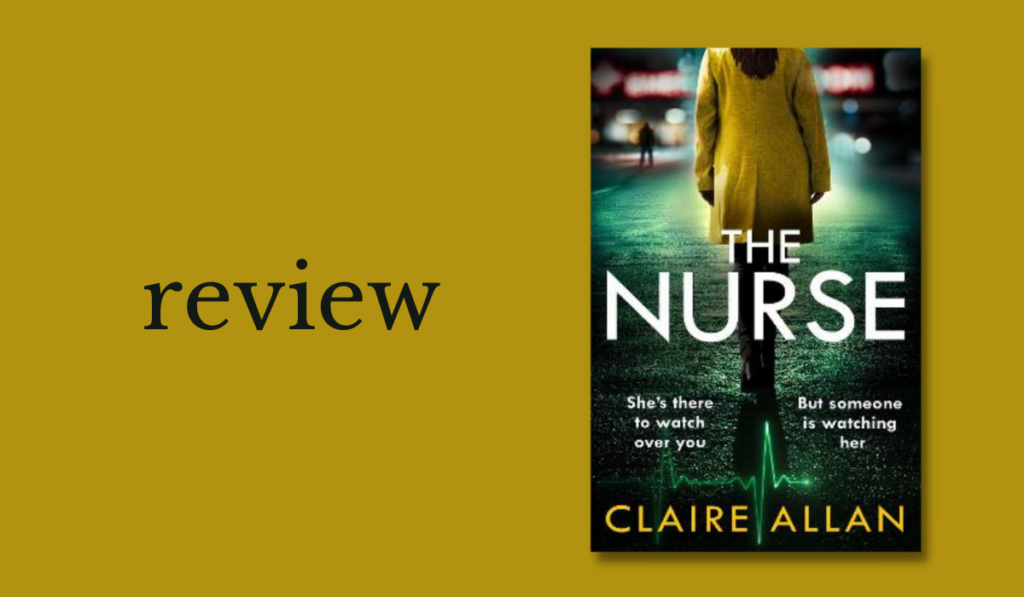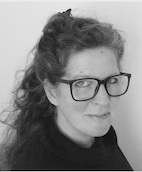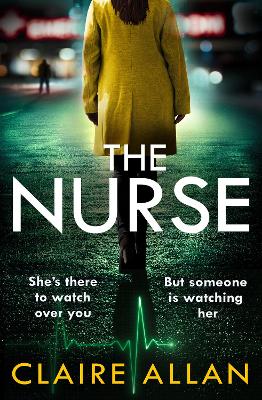
The Nurse|Claire Allan|Harper Collins|ISBN:9780008383572|€13.99
“…a pacey, readable thriller from a writer unafraid to take us to the dark places.”
—Catherine Murphy reads The Nurse, by Claire Allan.
by Catherine Murphy
n.b. this review deals with issues around violence against women.
Every woman knows the nightmare, as does anyone who has felt vulnerable.
We’re walking down a dark street, alone. We hear footsteps behind us. Heavy footsteps. We start to tense. We glance back. It’s a man.
We tell ourselves it’s just someone else walking home from work and they happen to be going the same way, that’s all. But we slide our keys into one hand and our phone into the other. We speed up.
Then they speed up.
We cross the road, we move toward a streetlight.
They cross the road right behind us.
The fear of that situation never leaves us—if we’re not frightened for ourselves, we’re frightened for our daughters, or our nieces—and we’re frightened for good reason.
Danger of predators
The danger of predators is a known and very real threat, and in The Nurse, Claire Allan takes that fear and binds it tightly through a plot that sees the hunt both from the woman’s eyes, from the pounding of terror in her blood, and from the hunter’s point of view.
The plot is clear from the very beginning. A young woman, Nell, has disappeared. The police are worried. The family and friends are terrified. In the opening chapters, the point of view switches between Nell’s mother, Marian, and ‘Him’.
The timeline also moves, the mother’s voice noting each chapter by the number of days her daughter has been missing, and ‘Him’ noting a broader time, such as ‘two months earlier’.
At first this jolted me a little trying to work out where I was, but as the book progressed I forgot to check the chapter titles and I just read on to find out what happened.
Clearly drawn characters
The characters are clearly drawn. Although the mother’s emotions are raw and she’s obviously extremely frightened for her daughter, it’s Clodagh, Nell’s friend and flat mate, with whom I found myself connecting.
Again, Claire Allan uses our known fears to draw us deeper into the story: the nightmare of our best friend going missing, the thoughts running through our minds, the endless scramble to piece together what has happened over what might have happened.
Again and again, from different sides, the book tells us how in all those times we have been frightened, that we were right to be afraid—that this could happen.
With the readers’ anxieties so cleverly tied into the plot, the days of endless waiting without news from the police become more and more tense.
Marion’s relationship with Nell’s father is already strained but the enforced inactivity, the desperate inability to do anything to help find their daughter, finally destroys their marriage.
Eyes of the predator
And then we switch to ‘Him’, to the chapters written through the eyes of a predator. The darkness that was on the outside suddenly becomes all consuming.
The character of ‘Him’ is immediately unlikable. Sleazy. There are no redeeming characteristics here; this is a Bad Guy.
We see him in his home life and we hear the messed-up, angry thoughts rumbling around inside his mind, and gradually we piece together the story around his actions and how one thing—one simple comment online—becomes a mantra that will devastate lives.
Real-life predators
In the author notes at the end of the book, Claire Allan writes that everything she has used in the novel was based on things she read on the Internet—real men writing about following real women, to frighten them.
Men writing about trying to take back their assumed power, their autonomy over women, through violence and threat.
If the book scares the reader, the reality of these posts takes that fear to a whole new level.
There have been questions raised on the topic of writing about violent attacks on women, but if we silence the voices talking about this very real issue, then that gives the real-life attackers even more power. We need stories to make sense of reality.
Giving a voice to fear
In fiction we can find our voices, and in The Nurse Claire Allan gives a voice to our fear— to that moment of hearing the footsteps behind us, to the way we check the time, again, waiting to hear if our friend or our daughter made it home, safely—to the way we have to constantly check ourselves, and think: What if those footsteps are coming for me?
The Nurse is a pacey, readable thriller from a writer unafraid to take us to the dark places. Disturbing and engaging, it’ll hold the reader right to the last page.

Catherine Murphy












